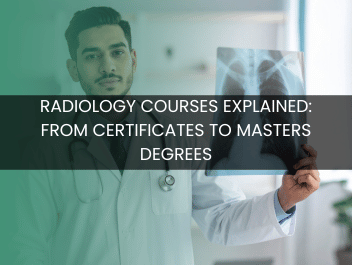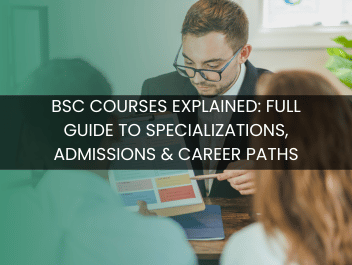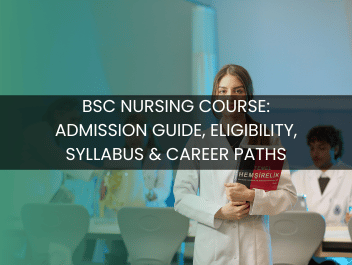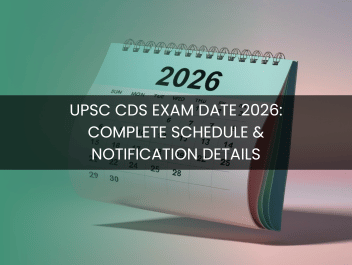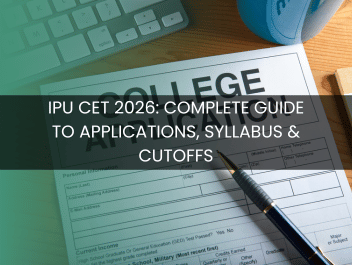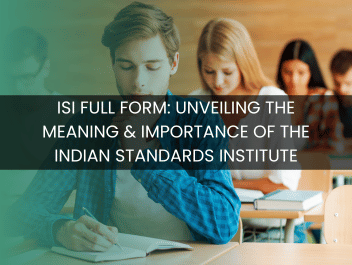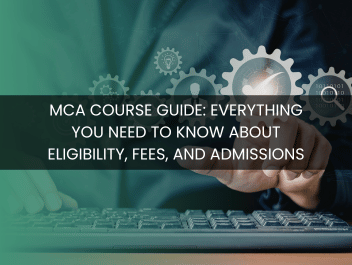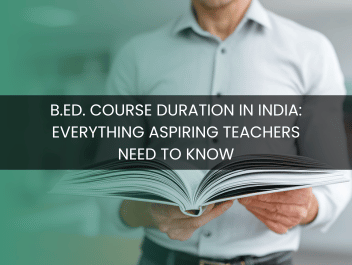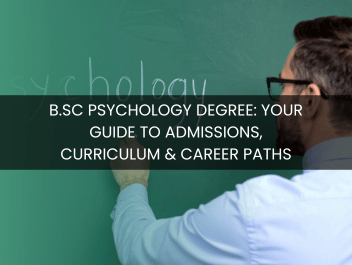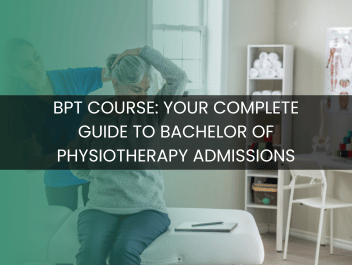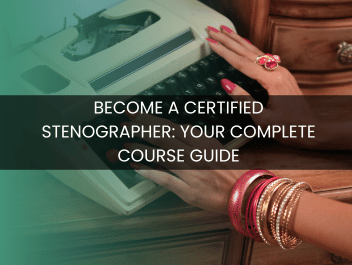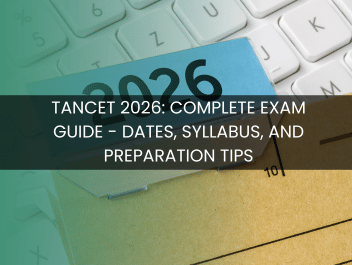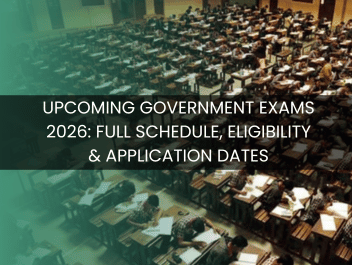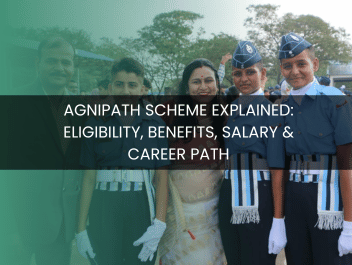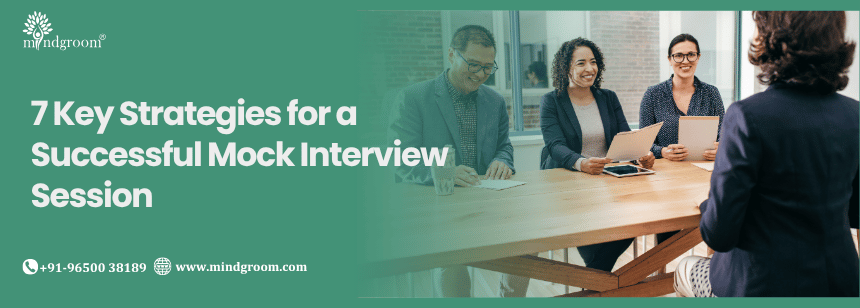
7 Key Strategies for a Successful Mock Interview Session
Navigating the job market can be a daunting experience, and one way to ease the anxiety is through a well-structured mock interview session. This preliminary step mimics the real interview experience and exposes candidates to a range of mock questions, helping them hone their responses. By understanding the dynamics of mock interviews and the significance of mock interview sessions, candidates can greatly improve their performance in actual interviews.
Mock interview sessions are essential for anyone aiming to build confidence and achieve success in their job search. These sessions offer a safe space to practice responding to common mock questions while receiving valuable feedback from a skilled interviewer. The ability to effectively answer mock interview questions can set a candidate apart and prepare them for various interview scenarios.
This article presents seven key strategies designed to maximize the effectiveness of mock interview sessions, from selecting the right mock interviewer to mastering the techniques needed to shine. We'll explore essential aspects such as the behavioral, technical, and situational mock questions you may encounter. Alongside techniques like active listening and the STAR method, you'll learn how to make the most of your mock interview experience and follow up with action plans for improvement.
Table of Content
Understanding Mock Interviews
Mock interview sessions are a valuable tool for improving interview performance. These sessions simulate real job interviews, allowing candidates to practice interviewing skills and communication skills. They provide a platform to practice common interview questions and mock questions. By rehearsing these in a practice interview, individuals can fine-tune their techniques and become more comfortable with the actual interview process.
In a mock interview session, participants often engage with a mock interviewer. This person provides constructive feedback on how to handle technical interviews, behavioral questions, and develops effective communication strategies. Through these practice sessions, candidates gain valuable insight into what a real interview experience might entail.
Benefits of Mock Interview Sessions:
- Simulated Job Interviews: Replicate real interview environments.
- Constructive Feedback: Helps improve the interview process.
- Interview Skills Development: Enhances communication and interviewing
skills.
- Preparation for Real Interview: Builds confidence for real job
interviews.
Many platforms, like mindgroom.in, offer mock interview tools, helping candidates align with company culture and job descriptions. This preparation is key to achieving career goals and excelling in actual interviews. Overall, mock interview sessions are an effective way to boost one's readiness for the competitive job market.
The Importance of Mock Interview Sessions
Mock interview sessions are essential for anyone preparing for a job interview. These sessions replicate the actual interview setting, allowing candidates to practice and hone their interview skills. The importance of mock interview sessions lies in their ability to prepare candidates for the challenging job market. By participating in mock interviews, individuals build confidence, receive valuable feedback, and become adept at handling various interview scenarios. Mock interview sessions serve as a rehearsal before the real interview, making candidates familiar with common interview questions and comfortable with the interview process. This preparation is crucial for anyone aiming to succeed professionally and achieve their career goals.
Building Confidence
Confidence is key to performing well in any interview. Mock interview sessions are instrumental in building this confidence by allowing candidates to practice in a pressure-free environment. These sessions replicate the real interview experience, enabling participants to become familiar with the interview setting. As candidates answer various mock questions, their confidence grows. The repetitive practice helps reduce anxiety, ensuring that they feel more prepared for the actual interview. With each session, individuals learn to present themselves more effectively, articulate their thoughts clearly, and demonstrate their suitability for the job.
Gaining Valuable Feedback
One of the primary benefits of participating in mock interview sessions is receiving constructive feedback. Engaging with a mock interviewer provides candidates with insights into their performance. Feedback may cover communication skills, body language, and the manner of addressing mock interview questions. Constructive criticism helps individuals identify areas for improvement, refine their interview strategies, and enhance their overall interviewing skills. With this feedback, candidates can make necessary adjustments before the actual interview, ensuring they present their best self. This process transforms mock interviews into a learning opportunity that significantly boosts interview performance.
Practicing Answering Mock Interview Questions
Practicing answering mock interview questions is a critical component of mock interview sessions. These practice sessions allow candidates to prepare for a wide range of potential questions they might face. They learn to apply techniques like the STAR method to answer behavioral questions effectively. Repeated practice equips candidates with the ability to think on their feet and respond fluently. Furthermore, familiarizing themselves with common interview questions during these sessions reduces the likelihood of being caught off guard in a real interview. As a result, candidates can approach their real job interview with confidence, knowing they have practiced well.
Selecting the Right Mock Interviewer
Choosing the right mock interviewer is crucial for a successful mock interview session. Mock interview sessions are designed to simulate real interview experiences, providing valuable insights into one's interview skills. The right mock interviewer can assess your performance and help you improve through constructive feedback. To excel in your career goals and the actual interview process, think of your mock interviewer as your guide. They will introduce mock questions and evaluate your communication skills, providing useful feedback.
Skills and Experience Required
The ideal mock interviewer should possess a specific skill set and experience. They need strong interviewing skills to effectively evaluate candidates. Experience in real job interviews is crucial as it provides them with a comprehensive understanding of the interview process. Additionally, knowledge of the STAR method and behavioral questions is also important as it helps in crafting relevant mock interview questions.
A mock interview tool or service they use can enhance the simulation of actual interviews, making the experience more valuable. Understanding company culture is another key aspect. This ensures that the questions align with real interview experiences that candidates might face in that industry.
Roles of a Mock Interviewer
The roles of a mock interviewer include setting the tone for the mock interview session and ensuring it mirrors a real job interview. They simulate the actual interview experience by posing technical interviews, common interview questions, and communication skill tests. They utilize interview strategies to prepare candidates for the kind of questions specific to the job description they’re targeting.
They offer constructive feedback, helping candidates understand their strengths and areas needing improvement. This feedback gives valuable insights into the candidate’s interview performance, opening doors for improvement in their interviewing skills. Mock interviewers also help candidates practice interview scenarios, enabling them to rehearse and refine responses to anticipated questions. By focusing on these roles, mock interviewers play a significant part in preparing candidates for real interviews.
Preparing for Your Mock Interview Session
Participating in a mock interview session can significantly boost your confidence and readiness for actual interviews. A well-structured mock interview provides a safe space to practice interview skills without the pressure of a real job interview. In these sessions, you face mock questions that resemble those asked in real interview experiences. The practice interview allows you to refine communication skills, learn constructive feedback, and gauge your performance. By treating the mock interview like a simulated job interview, you can improve your interviewing skills and become familiar with the interview process.
Research and Preparation
Before you step into any mock interview session, spend a good amount of time researching. Understand the job description and the company culture to align your answers with their expectations. Begin by researching common interview questions and develop responses using the STAR method, which helps structure behavioral questions. Practice technical interviews if the job demands certain skills. This preparation is akin to studying before a test, offering you valuable insight into how you may perform during actual interviews. It is crucial to get familiar with the type of mock questions asked.
One effective strategy is to review job interview strategies and techniques. Focus on enhancing your communication skills, as they are critical both in mock interview sessions and real job interviews. By researching effective communication tactics, you boost your confidence. This research not only aids in tackling mock questions but also prepares you for the actual interview process. When done methodically, research and preparation can bridge the gap between practice interview sessions and successful real interview experiences.
Setting Up the Environment
Creating the right environment for your mock interview session is crucial. Simulate a professional setting that resembles a real interview experience. This involves choosing a quiet location free from distractions to maintain focus throughout the session. Ensure proper lighting and a tidy background to mimic a professional ambiance. This setting helps condition your mind for a seamless transition from practice interviews to actual interviews.
Dress appropriately for a real interview, as it gives you a sense of seriousness and professionalism. Carry necessary materials such as a resume, a notepad, or a mock interview tool like a recording device to evaluate your interview performance. An ideal environment fosters confidence and concentration, allowing you to deliver coherent answers to mock questions.
Finally, maintain a positive mental attitude. Being mentally prepared is as important as acquiring interviewing skills. A calm, confident mindset helps you navigate through mock interview sessions smoothly. Remember, each session is a stepping stone towards achieving your career goals, honing your interviewing skills, and succeeding in real job interviews.
Key Mock Interview Questions to Expect
Preparing for a mock interview session is crucial in mastering the art of real interviews. Mock interview sessions are invaluable tools in enhancing your interview skills and refining your communication skills. They mirror the actual interview process, giving you a realistic feel of what to expect in a real job interview. These sessions often cover various types of mock questions, from behavioral to situational, and include technical aspects if applicable. In this article, we explore key mock interview questions you might encounter and provide insights into how best to tackle them.
Behavioral Questions
Behavioral questions are a staple in mock interview sessions. These questions assess how you’ve handled situations in the past to predict future behavior. They often start with phrases like "Tell me about a time when..." or "Give an example of..." This approach allows the mock interviewer to evaluate your problem-solving skills, adaptability, and how you align with company culture. By using the STAR method (Situation, Task, Action, Result), you can structure your responses effectively. Mock interview tools often include behavioral questions to help candidates develop strong, well-rounded answers, drawing from their real-life experiences.
Technical Questions
Technical questions are a common component of mock interview sessions for roles requiring specialized skills. These questions test your knowledge and expertise in specific areas related to the job description. During a mock interview, these questions could range from basic concepts to more complex problem-solving scenarios. Practicing with mock questions helps you to not only understand the technical aspects but also to communicate your answers effectively, a crucial part of the interview process. Tools that simulate technical interviews are invaluable for honing these skills, providing a platform for repeated practice and feedback to improve your performance.
Situational Questions
Situational questions present hypothetical scenarios to gauge your decision-making abilities. In mock interview sessions, these questions test how you would handle potential challenges in a job role. They begin with "What would you do if..." and require you to think critically and creatively. To answer effectively, focus on identifying key issues, brainstorming possible solutions, and justifying your choices. Preparing with mock questions that reflect real job situations gives you the confidence to tackle these queries head-on. This preparation ensures you are ready to provide clear and concise responses during the actual interview process.
Techniques to Ace Your Mock Interview
A mock interview session is an invaluable tool for job seekers. Designed to simulate real interview settings, these sessions prepare candidates for actual interviews. Mastering mock interviews can boost confidence and enhance interview performance. In this article, we explore effective techniques to shine in your mock interview sessions. From practicing active listening skills to leveraging the STAR method to answer common interview questions, these strategies will provide candidates a competitive edge in the job interview process.
Practicing Active Listening
Active listening is a crucial skill in any interview. During a mock interview session, focus on understanding the mock interviewer’s questions. Often, candidates prioritize their responses without truly comprehending the inquiry. Effective communication involves both speaking and listening. Stay attentive to verbal cues and body language. This enhances not only the response quality but also demonstrates interest in the job description and company culture. By honing active listening skills, candidates can offer relevant responses and engage in a more authentic and productive conversation.
Active listening involves focusing entirely on the speaker, demonstrating that you value their words. Respond with appropriate non-verbal cues such as nodding to convey attention. Genuine follow-up questions further indicate comprehension and interest in mock questions and mock interview sessions. Observing these techniques during a mock interview prepares you for real interview experiences. This refining of your interview strategies guarantees readiness for any situation the interviewer presents, solidifying your ability to handle the actual interview process confidently.
Utilizing the STAR Method
The STAR method is a powerful framework for answering behavioral questions in interviews. It requires candidates to structure answers based on Situation, Task, Action, and Result. Utilizing the STAR method in mock interviews provides a structured approach to address common interview questions effectively. When preparing for mock interview questions, practice identifying situations from past experiences that align with potential job requirements.
Begin by describing the Situation, offer a brief overview of the context pertinent to the question. Next, detail the Task, highlighting the objective you needed to achieve. Proceed with Action, where you explain the steps taken to address the task, emphasizing your role and contributions. Conclude with Results, summarizing the outcomes of your actions and any lessons learned. This method not only ensures clarity but also showcases your problem-solving skills and capability to handle real-world challenges.
Practicing the STAR method in mock interview tools equips candidates with confidence and clarity. It transforms narrative rambling into concise storytelling. Mock interviews serve as an arena to refine this technique, honing your ability to provide coherent and compelling answers that display depth and understanding. Mastering the STAR method empowers you to leave a lasting impression, enhancing your chances of securing your career goals through the real job interview process.
Following Up After the Mock Interview Session
Following up after a mock interview session is an essential step in refining your interviewing skills. Engaging in a mock interview session not only mimics a real job interview but also provides valuable insights into areas for improvement. Your main goal here is to evaluate your performance and create a path for growth. This means learning from mock questions, understanding where you excelled, and identifying what still needs work. Whether you participated in a practice interview through a mock interview tool or faced simulated job interviews, following up is key to making progress. Let's delve into the steps of analyzing feedback and planning for your continued development.
Reviewing Feedback
After wrapping up the mock interview session, it's time to review feedback constructively. An important aspect of this process is understanding what was shared about your interview skills and communication skills. Constructive feedback is crucial as it offers you a mirror to see your strengths and weaknesses.
First, focus on any mock questions that challenged you. Analyze how you responded and consider how you could improve. Remember that mock interview questions are designed to prepare you for the real interview experience. Next, consider what your mock interviewer highlighted about your communication. Did you effectively convey your career goals and company culture fit? Understanding these nuances can refine your technique in actual interviews.
It's also essential to identify recurring patterns in the feedback. Did similar suggestions come up in multiple mock interview sessions or with various mock interviewers? This suggests persistent areas to work on. The goal is to take this feedback as a constructive tool in your overall interview process improvement.
Planning for Improvement
Now that you understand your feedback, it's time to plan for improvement. The insights gained from mock interview sessions should be used to bolster your interview strategies. Start by setting specific goals based on the areas you need to focus on. This plan should be actionable and clear.
For instance, if behavioral questions posed a challenge, practice using the STAR method to structure your responses effectively. The STAR method helps clarify situation handling, ensuring your answers in actual interviews demonstrate your skills and experiences sharply.
Next, dedicate time to refine areas where feedback suggested improvement. If technical interviews posed issues, spend time gaining technical insights or seeking resources to understand such questions better. This will enhance your mock interview and real interview performances.
Finally, embrace a mentality of continuous learning. Improvement is a gradual process; consistently engage in mock interview sessions with a mock interview service to keep honing your skills. As you continue to polish your interview approach, you'll find your confidence and effectiveness in the interview process significantly improved.
Looking For Job Satisfaction on the long run?
Please feel free to contact our experts
Call to ask any question
+91-9319336222Monday to Saturday
(9:00 AM to 8:00 PM)Resent Blogs
10 Things to Do During an Interview to Impress Your Future Employer
Learn MoreCrafting Your Personal Narrative: A Guide to Writing About Yourself
Learn MoreTop 10 Essential Interview Questions and Expert Answers for 2025
Learn MoreAce Your Next Interview: Essential Questions and Expert Answers for 2025
Learn MoreFirst-Time Manager Interview: Crucial Questions and Strategies for Success
Learn More150 Essential General Knowledge Questions for Interviews in 2025
Learn MoreMaster the Google Interview: Strategies for Success in 2025
Learn MoreHow Can You Describe Yourself Professionally? 5 Key Strategies You Need to Know
Learn MoreMastering the Art of How to Take Interview: Essential Techniques for Success
Learn More25 Essential HR Interview Questions and Answers PDF You Can't Ignore
Learn More7 Tips to Ace Your HR Screening Round and Land Your Dream Job
Learn More10 Essential Tips for Acing Your Interview Exam
Learn More5 Unique Interview Format Examples to Stand Out in Your Next Interview
Learn More5 Powerful Techniques for a Memorable Interview Introduction
Learn MoreMaster Your Next Interview with These Top Interview Preparation Apps
Learn MoreMastering the Art: Top Interview Questions for 12th Class Students
Learn More7 Must-Know Interview Questions for Freshers to Ace Your Job Hunt
Learn MoreMastering Interview Questions for HR Position with Answers: Strategies for Success
Learn More12 Essential Interview Questions for Recruiter Position You Should Prepare For
Learn More10 Must-Know Interview Questions UK Employers Love to Ask
Learn More10 Creative Interview Writing Examples to Spark Your Imagination
Learn More15 Essential Managerial Interview Questions for Freshers to Prepare
Learn More15 Unique Marketing Interview Questions You Haven't Prepared For
Learn More7 Key Strategies for a Successful Mock Interview Session
Learn MoreThe Ultimate Guide to Model Interview Questions: What You Need to Know
Learn More5 My Self Question Exercises to Unlock Your True Potential
Learn More10 Normal Questions That Can Spark Deep Conversations
Learn More15 Essential Personal Interview Questions for Freshers to Ace Your Next Job
Learn More10 Essential Phone Interview Questions You Can’t Afford to Ignore
Learn More15 Essential Sales Interview Questions and Answers for Freshers
Learn More7 Key Situational Interview Questions Every Employer Should Ask
Learn More15 Essential Software Developer HR Interview Questions You Need to Prepare For
Learn MoreMastering the Technical Interview: Essential Questions and Answers
Learn MoreTop Strategies for Responding to Tell Me About Yourself in a Student Interview
Learn MoreTop 10 Interview Questions and Expert Answers
Learn MoreMastering the Art of Interviewing: 50 Tough Questions and Smart Answers
Learn MoreHow to Ace Your Next Mock Interview: Tips and Strategies for Success
Learn MoreYour Ultimate Guide: 60 Insightful Questions to Ask Interviewers
Learn MoreCrafting the Perfect Response to Why Do You Want This Job?
Learn MoreUnique Ways to Tackle the Question Why Should We Hire You?
Learn MoreWhy Should We Hire You? - Top 10 Answers for Customer Service Roles
Learn MoreMastering the Art of Discussing Work Experience in Interviews
Learn MoreMastering Your Sales Interview: 50 Essential Questions and Answers
Learn MoreCareer Paths After 12th Commerce: Your Future Starts Here
Learn MoreExplore One-Year Courses After 12th for Non-Medical Students
Learn MoreQuick Career Paths: 2-Year Degree Courses After 12th for Fast-Track Success
Learn MoreComprehensive Guide: Courses After 12th Commerce
Learn MoreTop 10 Lucrative Courses to Consider After Completing Engineering
Learn MoreAdvancing Your Career: Top Choices After B.Tech in 2025
Learn MoreExplore Your Future: After CET Exam Which Course is Best for Aspiring Professionals?
Learn More5 Reasons Why After Inter CEC, Choosing the Right Course is Crucial
Learn MoreAfter PUC Which Course is Best for Aspiring Engineers? Explore Your Options!
Learn MoreUnlocking Your Future: Best Arts and Science Courses After 12th for 2025
Learn MoreWhy a Bachelor Degree in Commerce is Your Pathway to Success
Learn More15 Best Career Courses to Boost Your Earning Potential in 2025
Learn MoreEmerging Career Fields for 2025: What You Need to Know
Learn MoreExploring In-Demand Career Paths After 12th: Science, Arts, Commerce
Learn More15 Lucrative Science Careers You Should Consider
Learn MoreHigh-Paying Career Paths for Girls After 12th Commerce
Learn MoreTop 10 High Salary Career Courses After 12th Biology
Learn MoreTop 10 High-Paying BSc Specializations for 2025
Learn MoreExploring the Future: Innovative Career Paths for B.Tech Graduates in 2025
Learn MoreComprehensive Guide to B.Tech Specializations for MPC Graduates
Learn MoreUnlocking Your Potential: The Ultimate B Tech Job List for 2025
Learn MoreB.Tech Salary Insights: How Much Can You Earn Per Month?
Learn MoreEssential Business Courses After 12th: Your Guide to a Successful Career
Learn MoreHow Commerce Students Can Transition to BSc IT
Learn MoreExploring Career Paths After 12th: Your Guide to Success in 2025
Learn MoreCertainly! Here are 10 additional title ideas inspired by the list you provided
Learn MoreExploring Career Paths After Engineering: Your Guide to the Future
Learn MoreThe Ultimate Guide to Career Options Post-High School Graduation
Learn MoreDiscover the Top 10 Chemistry Courses After 12th That Lead to High-Paying Jobs
Learn MoreExplore the Best Diploma and Certificate Programs After 12th Commerce
Learn MoreCareer Paths for Computer Science Graduates: Top Opportunities to Explore
Learn MoreExplore Top Courses After 12th: Your Path in Science, Arts, or Commerce
Learn MoreTop 10 Courses After 12th Commerce for a Successful Career
Learn MoreTop Paying Professional Courses After 12th for Commerce Students
Learn MoreEmerging Career Paths After 12th Commerce Without Maths
Learn MoreExploring Career Paths After 12th Science: A Complete Guide
Learn MoreComprehensive Guide to Courses and Career Paths after 12th Grade
Learn MoreEmerging Career Paths in India: What to Expect in 2025
Learn MoreTop Diploma Paths for Students After Completing 12th Science
Learn MoreTop 15 Easiest High-Paying Jobs to Pursue in India by 2025
Learn MoreNavigating Your Future: Easy Degree Options After 12th
Learn MoreExploring Top Engineering Branches After 12th: A Comprehensive Guide
Learn MoreExploring Advanced Studies: Top Entrance Exams for Engineering Graduates
Learn MoreMBA Salary Insights: Top Packages and Compensation Trends in India
Learn MoreTop 15 Lucrative Careers in India for 2025
Learn MoreTop 10 High-Paying Jobs for Commerce Graduates Without Maths
Learn MoreTop 10 High Salary Courses After 12th PCB for Future Success
Learn MoreHigh-Earning Courses to Pursue After 12th Science in 2025
Learn MoreHigh Paying Career Paths for BiPC Students: Top 10 Courses to Consider
Learn MoreExploring High-Paying Engineering Degrees for the Future
Learn MoreExploring Integrated Courses After 12th: A Comprehensive Guide for Students
Learn MoreExploring Career Prospects: What Can You Do with a BBA Degree?
Learn MoreTop 15 In-Demand Professional Courses for Commerce Graduates in 2025
Learn MoreExploring Lucrative Job Paths for BBA Graduates in 2025
Learn MoreMBA Full Form Explained: Master of Business Administration & Its Strategic Career Value
Learn MoreBBA Full Form: The Definitive Guide to BBA Degrees, Admissions, & Career Paths
Learn MoreBCA Full Form Explained: Your Complete Guide to the Degree, Admission & Career Scope
Learn MoreIAS Full Form: Indian Administrative Service Explained & Its Pivotal Role
Learn MoreMBBS Full Form: Unraveling the Meaning Behind a Doctors Qualification
Learn MoreUPSC Full Form: Union Public Service Commission and Its Vital Role
Learn MoreBSc Full Form: Bachelor of Science & What It Means for Your Future
Learn MoreITI Full Form: What Exactly is Industrial Training Institute?
Learn MoreLLB Full Form: Your Ultimate Guide to Bachelor of Laws, Eligibility & Career Scope
Learn MoreIs There a True Computer Full Form? Unpacking the Popular Acronym
Learn MoreB.Tech Full Form Unpacked: Meaning, Scope, and Why It Matters for Your Career
Learn MoreIIT Full Form: Unveiling the Indian Institute of Technology and Its Legacy
Learn MoreMCA Full Form Revealed: Master of Computer Applications & Its Significance
Learn MoreIIT Full Form: Indian Institute of Technology – Understanding Its Legacy, Campuses, and Global Standing
Learn MoreYour Complete Guide to Becoming a Veterinarian: Education, Specialties & Career Paths
Learn MoreBSc Degree: Your Complete Guide to Courses, Careers, and Future Prospects
Learn MoreB.Com Full Form Unveiled: What Bachelor of Commerce Truly Means
Learn MoreBAMS Full Form: Bachelor of Ayurvedic Medicine and Surgery — Unpacking Its Meaning & Career Scope
Learn MoreWhat is a Polytechnic? Your Complete Guide to Courses, Admissions & Career Paths
Learn MoreSSC GD Constable Exam News 2025-26: Latest Updates on Vacancies, Dates & Application
Learn MoreHow to Choose the Best Veterinarian for Your Pet: A Comprehensive Guide
Learn MoreAir Hostess 2026: Your Complete Roadmap to Landing the Dream Job
Learn MoreUnlocking Your Future: The Ultimate BSc Degree Guide (Courses, Careers & Admissions)
Learn MoreCMA Full Form: Certified Management Accountant (Global Standard Explained)
Learn MoreNACH Full Form Explained: What It Is & Why It Matters in Banking
Learn MoreThe Modern Anthropologist: Understanding Their Role, Impact, and Diverse Specializations
Learn MoreBBA: Your Ultimate Guide to Course Details, Admission, Fees, and Future Career Prospects
Learn MoreBDS Full Form Unpacked: Your Essential Guide to Dentistry Courses, Admissions & Career Scope
Learn MoreBHMS Full Form Revealed: Your Complete Guide to Bachelor of Homeopathic Medicine & Surgery
Learn MoreB.Tech Admissions 2026: Your Complete Guide to Courses & Eligibility
Learn MoreCFA Full Form: Understanding the Chartered Financial Analyst Designation
Learn MoreMerchant Navy Salary in India: Unveiling Pay Scales by Rank & Experience
Learn MoreTS EAMCET 2026: Official Notification, Exam Dates & Application Guide
Learn MoreVITEEE 2026: Full Guide to Application, Dates, Syllabus & Preparation
Learn MoreBMS Full Form: Unveiling Bachelor of Management Studies & What it Entails
Learn MoreB.Sc. Computer Science: Your Complete Guide to Courses, Careers & Eligibility
Learn MoreComputer Science Explained: From Basics to Advanced Concepts
Learn MoreWorlds Most Difficult Exams: A Definitive Ranking for 2025
Learn MoreUnion Public Service Commission (UPSC): All You Need to Know
Learn MoreBE Full Form Explained: What Bachelor of Engineering Means & Your Career Path
Learn MoreDMIT Full Form Revealed: Unpacking the Dermatoglyphic Multiple Intelligence Test
Learn MoreIndias Most Difficult Exams: The Ultimate Ranking for 2025
Learn MoreCLAT Full Form: Unveiling the Common Law Admission Test + Key Details
Learn MoreHighest Paying Jobs in India: Unveiling the Top 25 Roles & Their Lucrative Salaries
Learn MoreMA Full Form: Unpacking the Master of Arts Degree & What It Entails
Learn MoreMarketing Management Explained: Core Concepts & Strategic Implementation
Learn MoreBCA Course Subjects: A Comprehensive Guide to Your IT Degree Curriculum
Learn MoreCAT Exam Date 2026: When to Apply & Exam Schedule Revealed
Learn MoreCDS Full Form: Unveiling Combined Defence Services & Your Path to Commission
Learn MoreLab Technician Career Path: Duties, Skills, and Salary Guide
Learn MoreYour Complete Guide to Becoming a Successful Software Developer
Learn MoreAir Hostess Course Guide: Everything You Need to Know for Your Aviation Career
Learn MoreIntroduction: Navigating Your Path to Medical Excellence in India
Learn MoreTop Commerce Courses After 12th: Unlock Lucrative Career Paths
Learn MoreTop Industrial Training Institutes: Your Guide to Skilled Trades
Learn MoreUnderstanding Psychometric Tests: Your Definitive Guide & Free Examples
Learn MoreWhat Does a Surgeon Do? A Comprehensive Guide to the Profession
Learn MoreUG Explained: Your Ultimate Guide to Undergraduate Degrees & Admissions
Learn More10th Pass Govt Jobs 2026: Your Complete Guide to Apply & Secure Your Career
Learn MoreATMA: Your Complete Guide to the Management Admissions Test
Learn MoreBHMS Course Guide: Eligibility, Syllabus, Career Prospects & Top Colleges
Learn MoreUnlock Your Future: The Definitive Guide to Career Counselling
Learn MoreWhat Does a Clinical Psychologist Do? Your Comprehensive Guide
Learn MoreM.Tech Full Form: Master of Technology Explained (Meaning, Scope & Benefits)
Learn MoreRadiology Courses Explained: From Certificates to Masters Degrees
Learn MoreBSc Courses Explained: Full Guide to Specializations, Admissions & Career Paths
Learn MoreBSc Nursing Course: Admission Guide, Eligibility, Syllabus & Career Paths
Learn MoreBA LLB Full Form Explained: Unpacking Bachelor of Arts & Bachelor of Laws
Learn MoreTop BBA Colleges in India: Unveiling the Elite Institutions for Your Management Degree
Learn MoreUPSC CDS Exam Date 2026: Complete Schedule & Notification Details
Learn MoreTop Career-Focused Courses After 12th Grade: Unlock Your Future
Learn MoreExplore the World of Humanities Subjects: A Comprehensive Guide
Learn MoreIPU CET 2026: Complete Guide to Applications, Syllabus & Cutoffs
Learn MoreISI Full Form: Unveiling the Meaning & Importance of the Indian Standards Institute
Learn MoreJEE Advanced 2026 Exam Date: When Will the Exam Be Held?
Learn MoreJEE Main 2026 Result Date: When to Expect Session 1 & 2 Results
Learn MoreMCA Course Guide: Everything You Need to Know About Eligibility, Fees, and Admissions
Learn MoreMultimedia Explained: Your Complete Guide to Definition, Examples, and Impact
Learn MoreThe Ultimate Paramedical Courses List: Find Your Perfect Career Path
Learn MorePharm.D. Program: Your Complete Guide to Curriculum, Admissions & Outcomes
Learn MoreThe Ultimate Guide to Top IIT Colleges in India: Ranking, Admissions, and Courses
Learn MoreATC Full Form: Unpacking Air Traffic Control, Anatomy & More
Learn MoreB.Ed. Course Duration in India: Everything Aspiring Teachers Need to Know
Learn MoreB.Sc Psychology Degree: Your Guide to Admissions, Curriculum & Career Paths
Learn MoreB.Tech Computer Science: Your Complete Guide to Admission, Syllabus & Career Prospects
Learn MoreBDS Course Duration: How Long is Bachelor of Dental Surgery?
Learn MoreBFA Full Form Explained: What is a Bachelor of Fine Arts & Why it Matters
Learn MoreBiology Explained: What It Is, Its Core Concepts & Why It Matters
Learn MoreBPT Course: Your Complete Guide to Bachelor of Physiotherapy Admissions
Learn MoreBSc Nursing Full Form: What it Means and Why it Matters
Learn MoreThe Science Complete Guide: Best Courses & Career Paths Revealed
Learn MoreMaster Your Future: Your Complete Guide to 2026 Government Exams & How to Prepare
Learn MoreMPhil Explained: Your Complete Guide to the Master of Philosophy
Learn MoreBecome a Certified Stenographer: Your Complete Course Guide
Learn MoreTANCET 2026: Complete Exam Guide - Dates, Syllabus, and Preparation Tips
Learn MoreUpcoming Government Exams 2026: Full Schedule, Eligibility & Application Dates
Learn MoreWhat is CA? The Complete Guide to Chartered Accountancy and Your Career Path
Learn MoreAgnipath Scheme Explained: Eligibility, Benefits, Salary & Career Path
Learn MoreAFCAT 2026: Your Complete Guide to the Air Force Common Admission Test
Learn MoreConnet Us
Unlock Your Dream Career Potential - Get Expert Advice From Our Counselling Experts



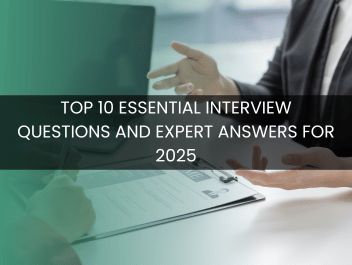





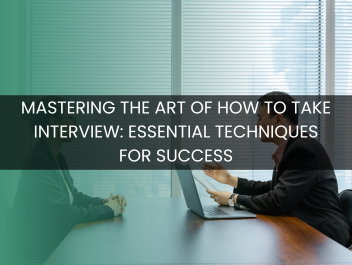
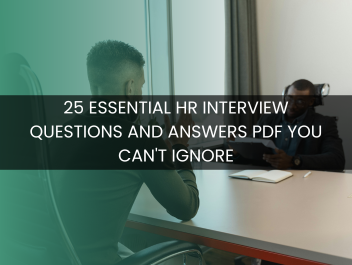

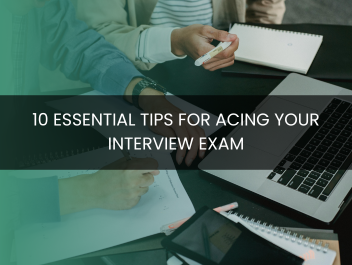

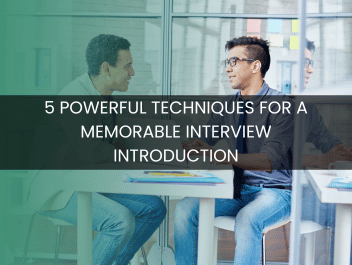
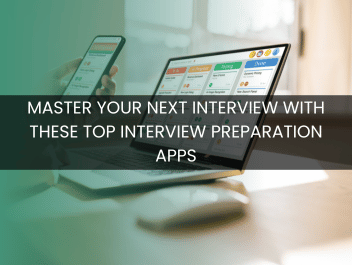
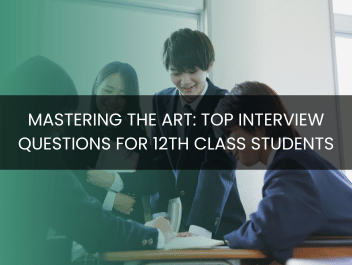





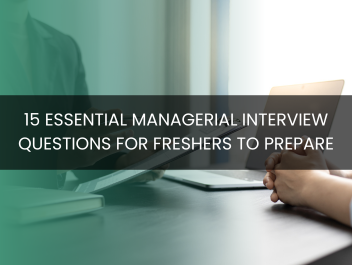

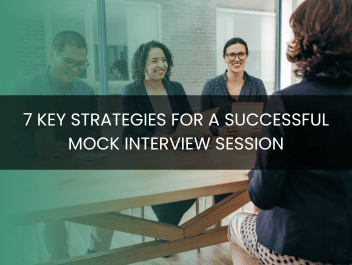
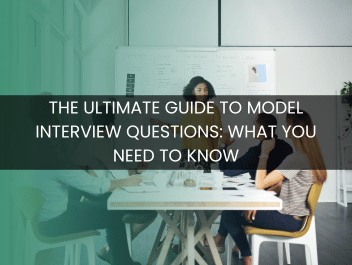





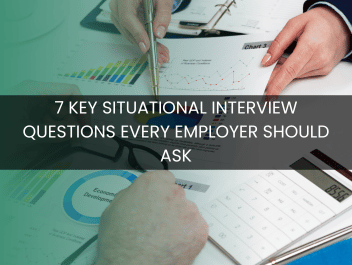

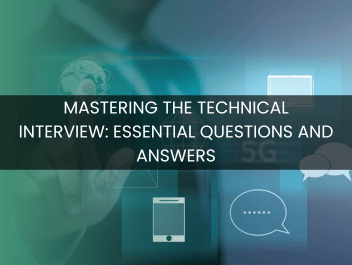
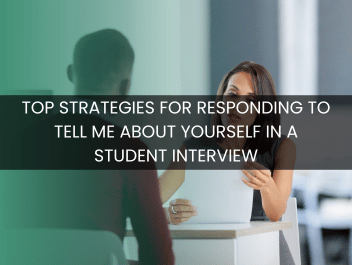
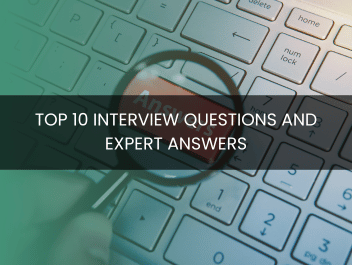
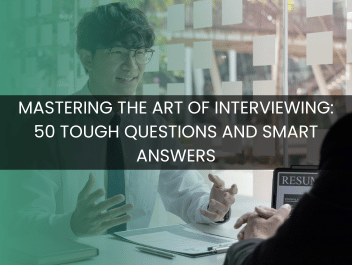








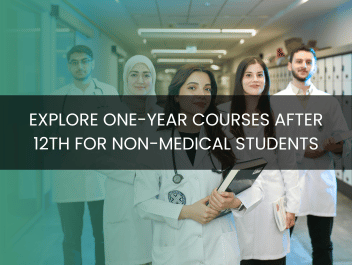

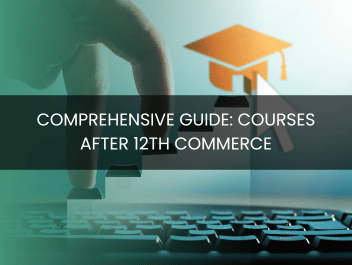


















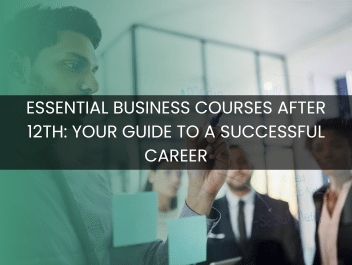

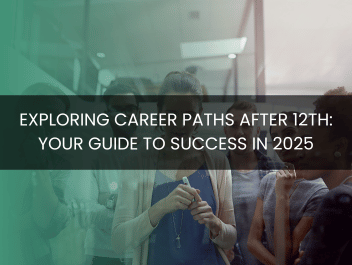


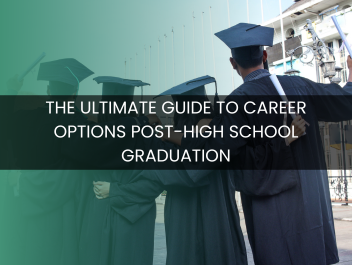








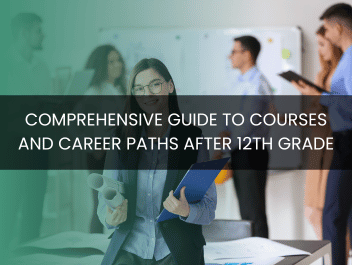













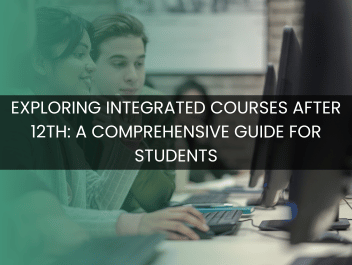




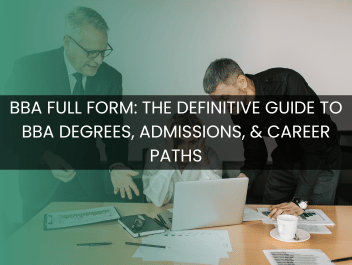
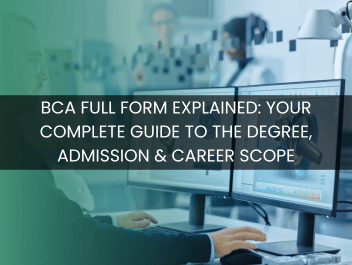
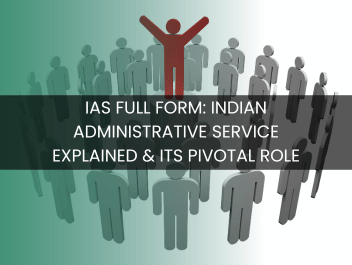










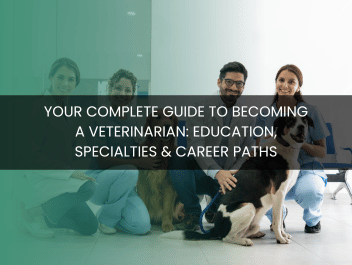




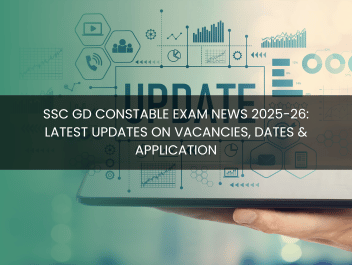


_Thumbnail_.png )
_Thumbnail_.png )


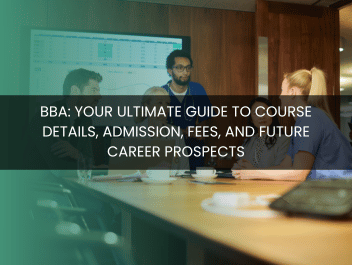





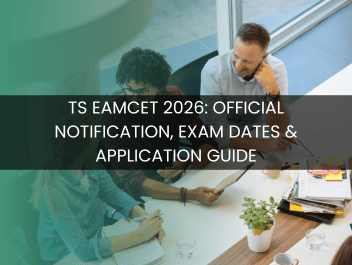
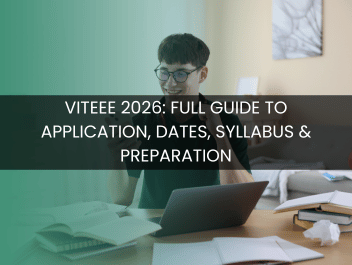




_All_You_Need_to_Know_Thumbnail_.png )



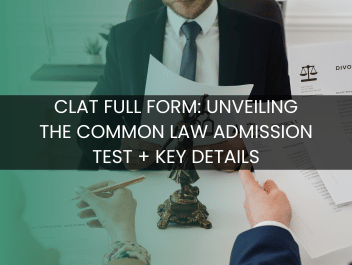


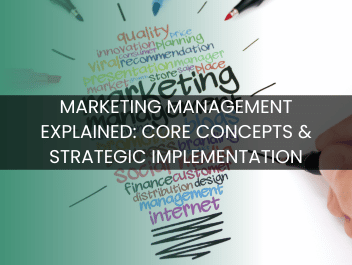
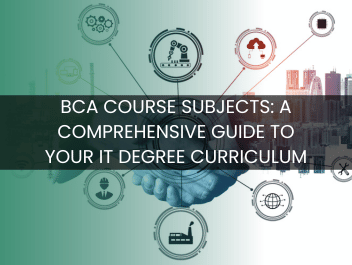
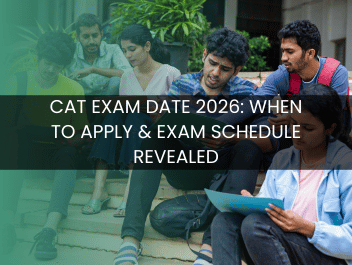
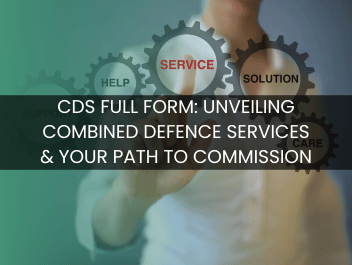

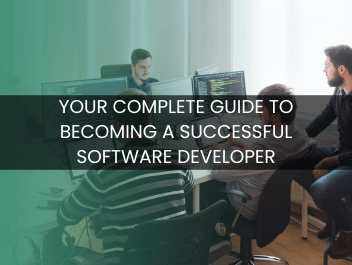








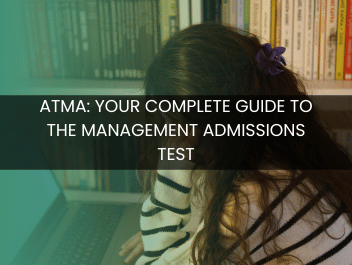

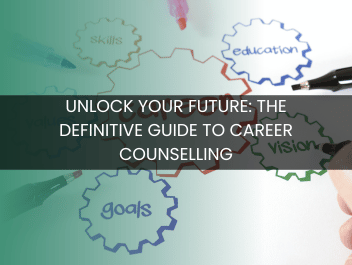

_Thumbnail_.png )
